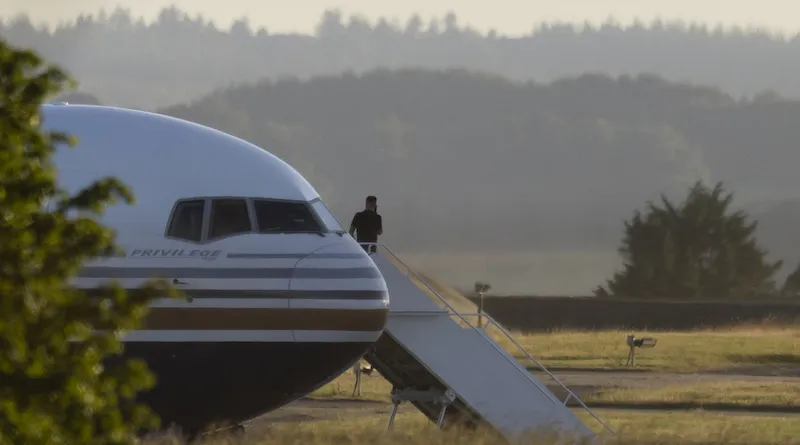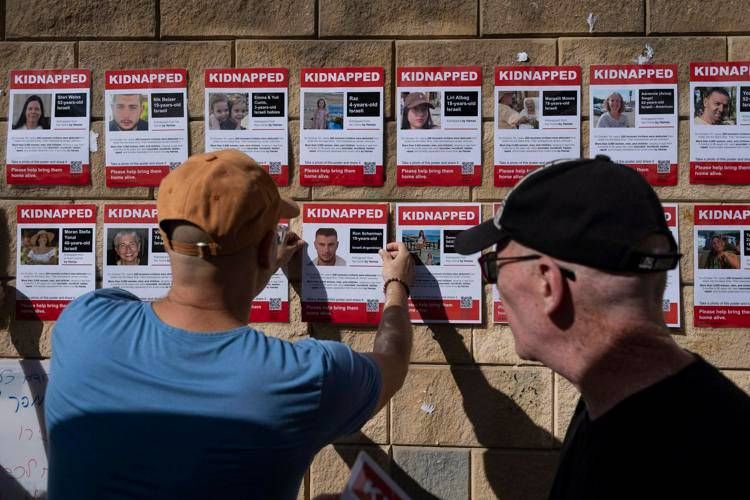The first flight that was supposed to bring some asylum seekers to Rwanda from the UK, as predicted by the new controversial and critical immigration policy adopted by the British government, Banned on Tuesday Serra following a ruling by the European Court of Human Rights. The decision was reported an hour and a half before departure: the court ruled that one of the asylum seekers who should have been transferred, a man who had fled Iraq, would have suffered an irreparable violation of his rights if he had been brought in Rwanda.
At the time of sentencing, the flight was ready to depart with seven asylum-seekers on board: at that point, lawyers for the other six also appealed, and everything was blocked.
The disruption to the flight is seen as a defeat for Boris Johnson’s government, which in April announced an agreement with Rwanda on handling asylum seekers arriving on British soil.
the agreement It’s called the Migration and Economic Development Partnership: it says the UK will pay the Rwandan government to sponsor migrants who have entered British territory illegally as long as it is necessary for the British authorities to decide whether to grant them refugee status. It also provides for the migrants themselves to remain in Rwanda if their asylum application is accepted. In other words, this means that even those who have been granted asylum will not be allowed to return to the UK.
The controversial plan has drawn huge criticism and lawsuits have been under way for months to prevent the transfer of migrants.
The first flights to Rwanda were supposed to depart in May, but were postponed due to lawsuits from various activists and NGOs. Monday, London Court of Appeal He had rejected a final injunction It was provided by some NGOs such as Care4Calais and Detention Action, giving the green light for the departure of the first flight.
But the problems persisted, as passengers continued to look for legal ways to avoid being transported: last week the first flight was expected to carry 130 migrants, then on Friday their number was reduced to 31, and in the end there were only seven left.
Despite this, the government decided to release the huge Boeing 767 it had chartered for the occasion, albeit practically empty, with the aim of symbolically marking the beginning of the transfer program.
But shortly before departure, the European Court ruling was issued, according to which one of the passengers, a 54-year-old Iraqi who had crossed the English Channel by boat to reach the UK, was entitled to stay in the country because he had not yet exhausted all legal avenues to seek asylum in the UK and avoid deported. Had he been transferred to Rwanda, the man would have risked not being able to return to the UK even if the court had granted his requests later.
The government’s reaction was very angry. “We will not stop doing the right thing and carrying out our plans to defend our nation’s borders,” British Home Secretary Priti Patel said, pledging that the government would prepare new flights to Rwanda anyway. In recent weeks, Prime Minister Boris Johnson has alluded to the fact that lawyers helping asylum seekers have been helping human traffickers, even speculating that the UK could fall outside the jurisdiction of the European Court of Human Rights. Able to implement the transportation plan.
The government’s plan to bring asylum seekers to Rwanda will receive more legal challenges: in particular, a ruling from the High Court of Justice in London on the legality of the entire project is expected in July. At the moment, the transfers are turning out to be a very costly bankruptcy: the British government has already paid 120 million pounds in footnote to Rwanda, and according to sources in guardian Only the flight that was canceled at the last minute (which in any case should only have carried seven immigrants) Its cost to the state is 500,000 pounds.

“Reader. Travel maven. Student. Passionate tv junkie. Internet ninja. Twitter advocate. Web nerd. Bacon buff.”




